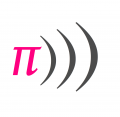Sonic Pi Tips
Sonic Pi is a code-based music creation and live performance tool.
It is free and open-source software (FOSS).
Versions of Sonic Pi are available for Windows (10 and 11), MacOS (both Intel and Apple Silicon), and Raspberry PI OS.
It can be used by anyone, "including programmers who don't know music, and musicians who don't know programming."
Sam Aaron developed the program in collaboration with Raspberry Pi Foundation.
Contact Us if you cannot find your answer here on our Wiki or if you notice any information that is outdated.
Tips
- Sonic Pi is based on the programming language Ruby, and files are saved with ".rb" extension
- However, using Sonic Pi does not require any previous programming experience.
Training
Links to sonic-pi.net:
Sonic Pi Tutorial
Sonic Pi Official Site
Links to other external sites:
- Essentials - Code Music with Sonic Pi -- free pdf from raspberrypi.com
- Basic Starter Cheat Sheet by samaaron on cheatography (lots of ads)
- Sonic Pi — on Wikipedia
- List of free and open-source software packages — on Wikipedia
Related Pages
Links to related PPM Wiki pages:
Hand-Curated Links
Links to YouTube:
- Sam Aaron live coding
- TEDx Talks — Programming as Performance
Links to raspberrypi.org:
Links to other external sites:
- Computer Programmed Music for Kids
- ChucK and WebChucK— programming alternative to Sonic Pi
For Additional Help
- Use the PPM Slack channel #computing
- List of all PPM Slack channels
- Note that we have a Slack channel (#job-board) for members to post, discuss, or accept job opportunities either within PPM or from the community.
Search the PPM Wiki — include Content pages as well as Multimedia.
Contact Us if you cannot find your answer here on our Wiki or if you notice any information that is outdated.
Pikes Peak Makerspace (PPM) is dedicated to supporting our maker community in their creative processes by providing shared space, shared tools, materials, software, and a knowledge base to turn their ideas into reality.
